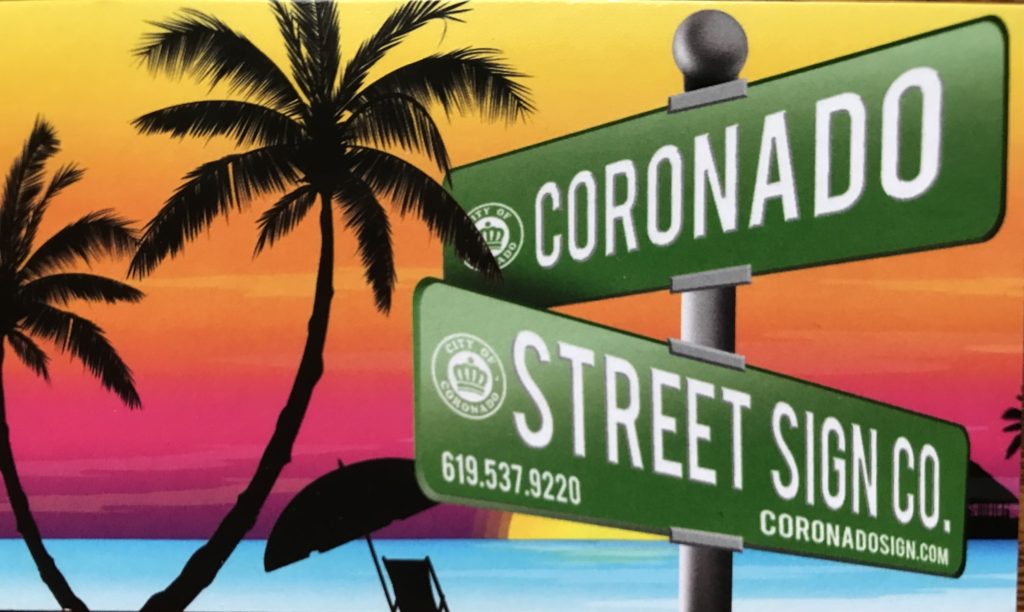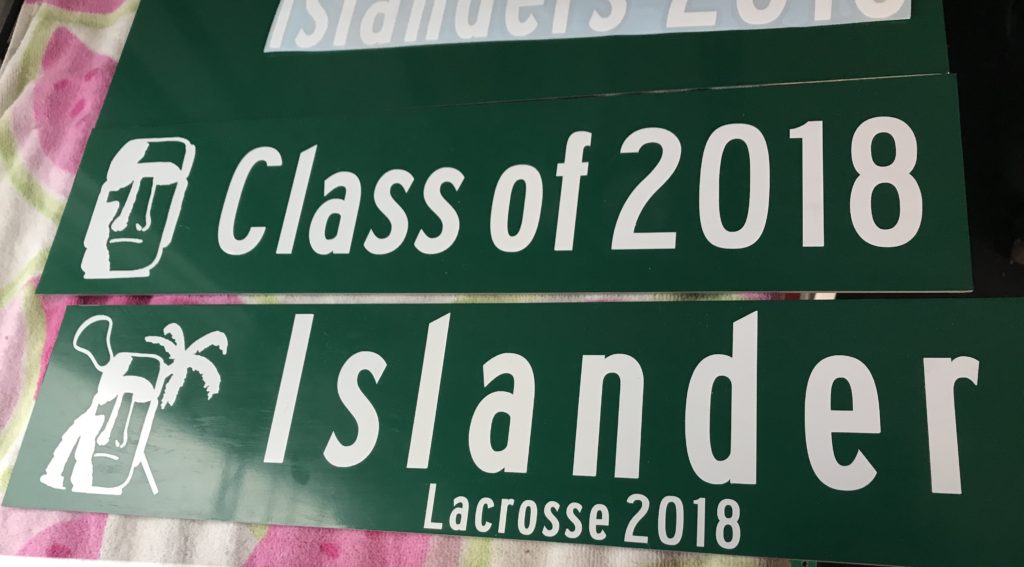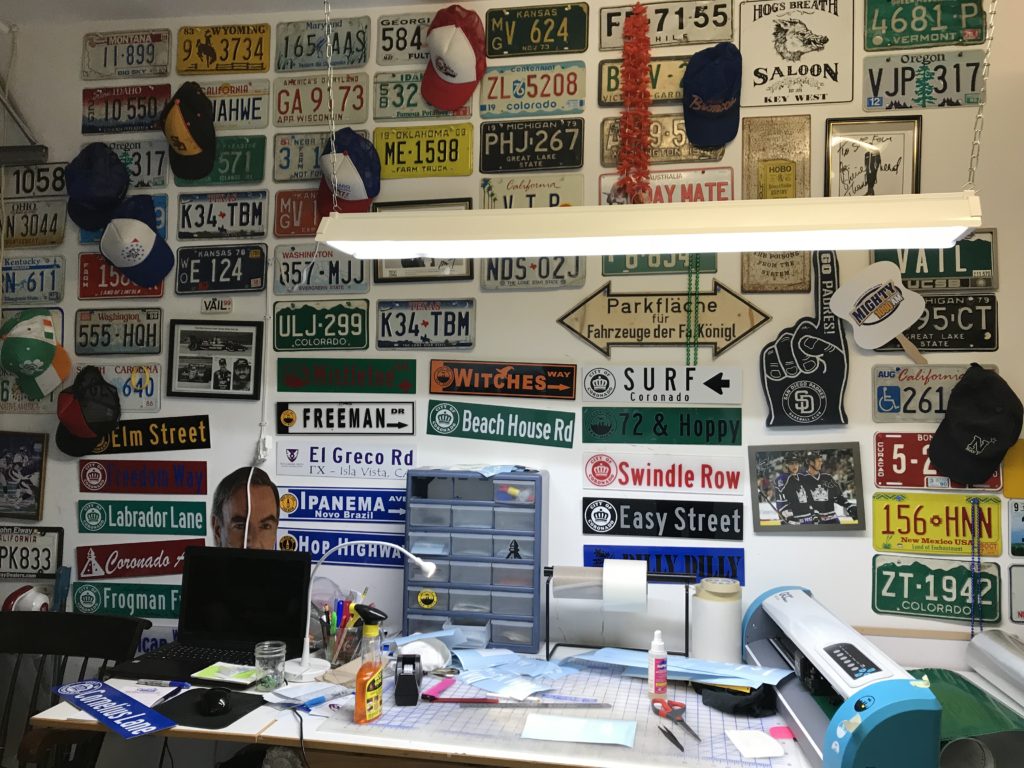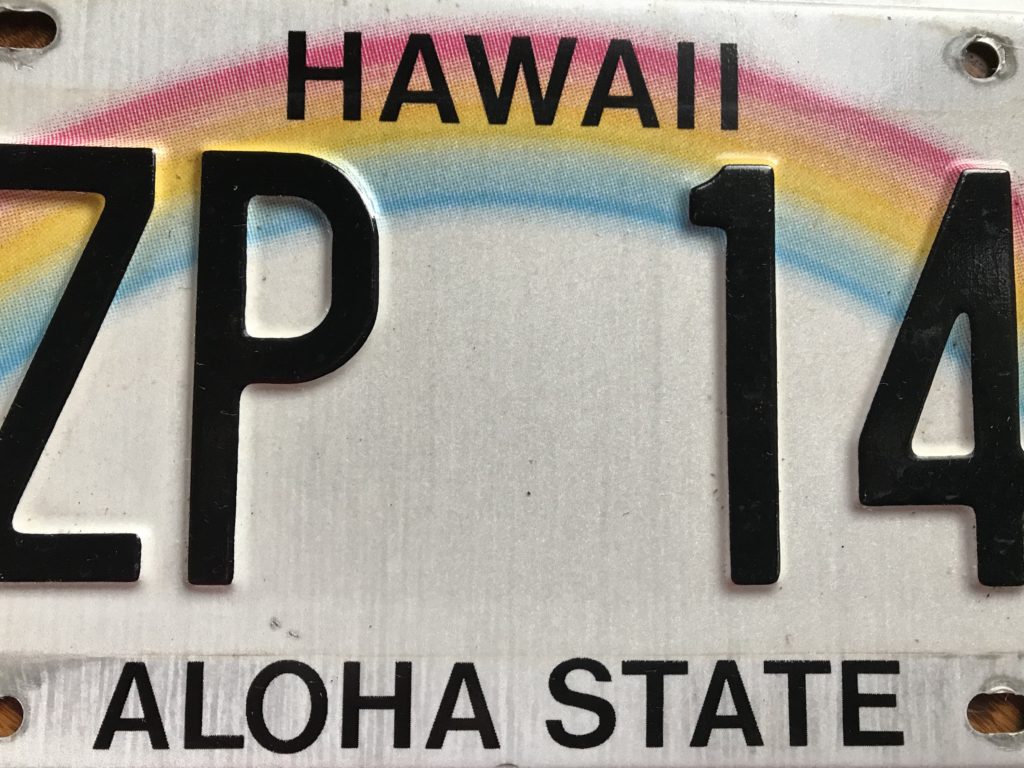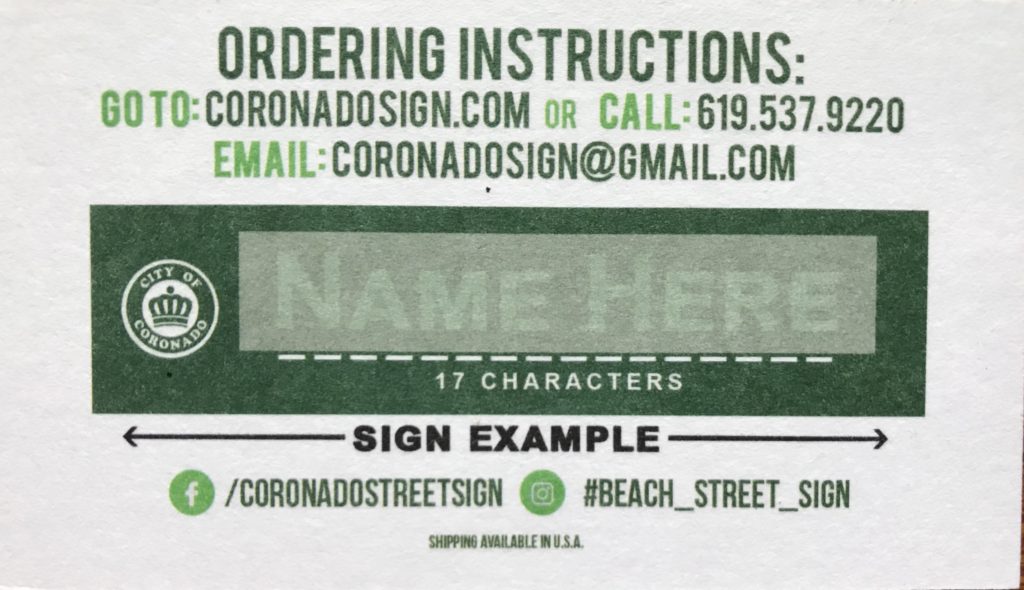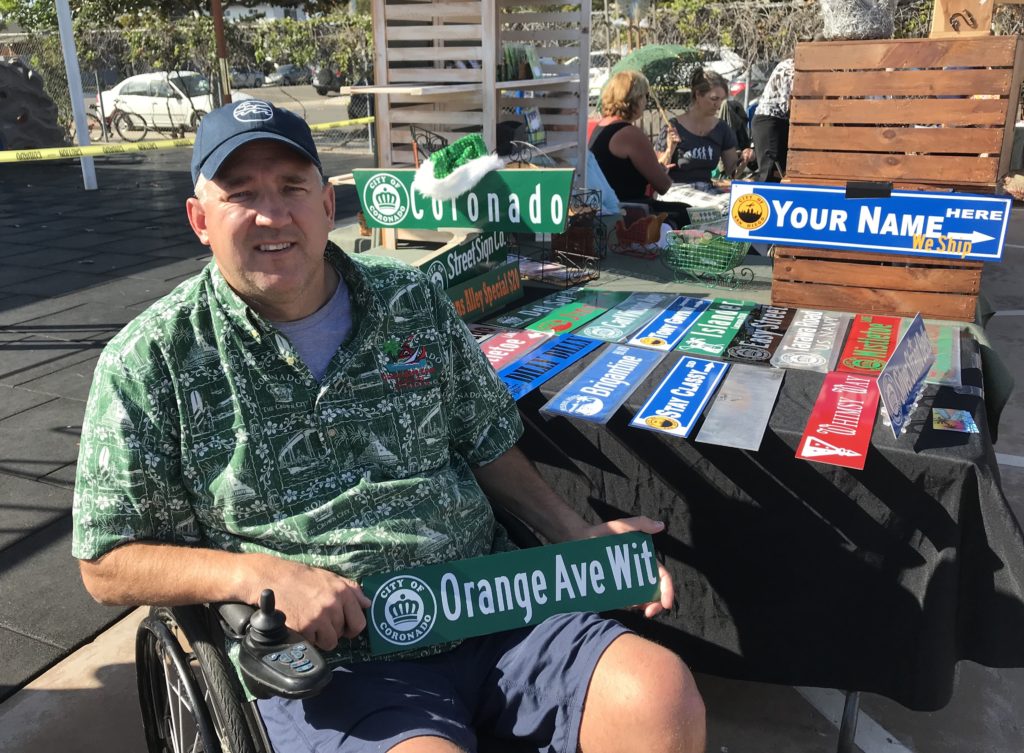
The first thing most people notice about Coronado resident Stefan Freeman is . . . (you thought I was going to say that he’s in a wheelchair) . . . his warm smile. The wheelchair you may notice next, but it’s not how he came to be in a wheelchair that defines him; it’s how he’s chosen to live life to the fullest after his unfortunate mishap that truly tells you everything you need to know about him. While some people in similar situations may have allowed their life’s circumstances to derail them, Stefan, whose Coronado Street Sign Co. has taken off since he started it this past June, hasn’t let the fact that he’s a quadriplegic interfere with his success.
While it’s almost certain you’ve come across the personalized street signs Stefan has created for people throughout our close-knit community, how many of you know the man behind Coronado Street Sign Co.?
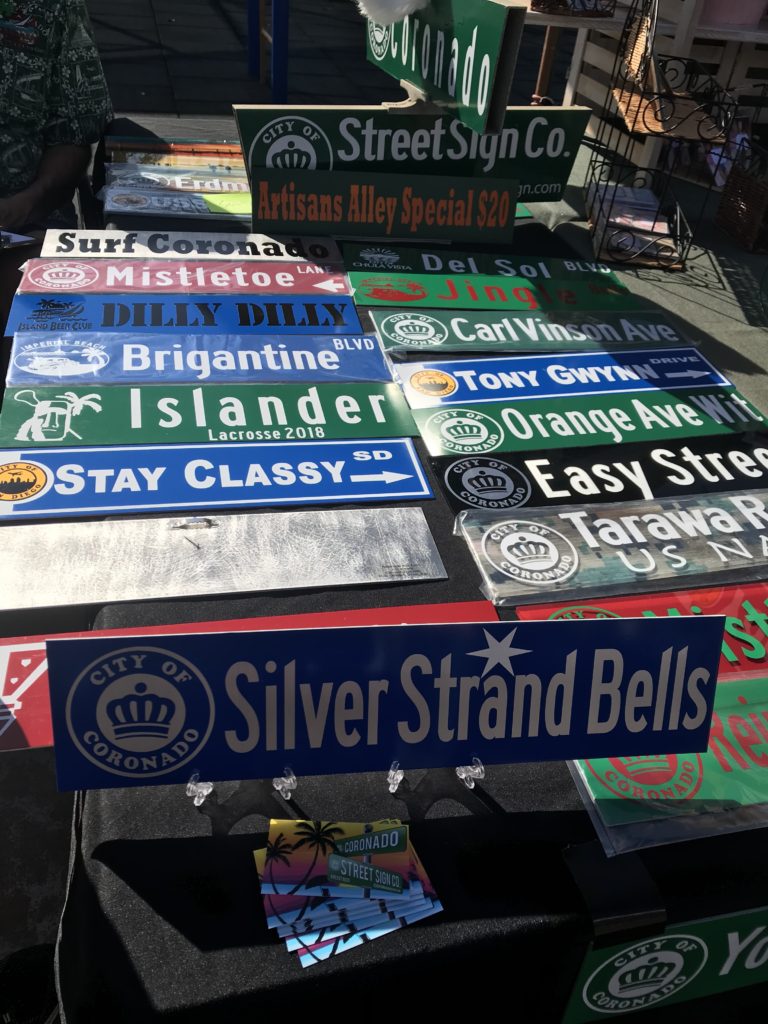
Background: The Moment that Changed Stefan Freeman’s Life
Growing up in Vail, Colorado, Stefan was always a huge fan of the great outdoors, and as an avid skier he called the slopes home. After completing his college education at University of California, Santa Barbara in 1996, Stefan was drawn back to Vail, where he spent a year working as a “ski bum” at a ski resort, reconnecting with the sport he loved. “Basically it was just a way to ski almost everyday,” he professes. Although it was a fun and carefree lifestyle, after a year Stefan knew it was time to put his college education to use. “I knew if I didn’t leave, I’d be stuck there, probably still living paycheck to paycheck,” he admits. “It was a good lifestyle, but I wanted to have a career,” he says.
In 1997, 24 year old Stefan made his way back to sunny California for an advertising job interview in Los Angeles. Before heading to LA, Stefan, who at 6’3″ was known for towering over most everyone, stopped in Santa Barbara for the night to reconnect with his college friends. As he enjoyed his friends’ company, a split second decision to dive into water that was too shallow altered his life forever. Stefan, ready to start his adult life, broke his neck.
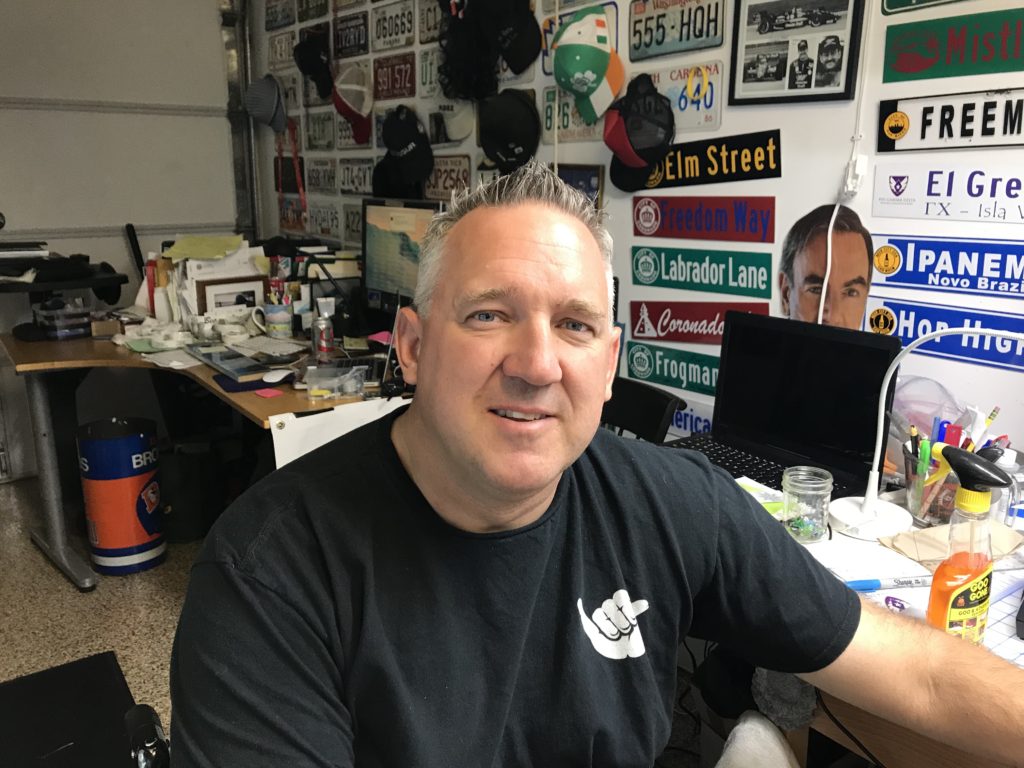
As he reflects on that singular moment that drastically changed his life, he still can’t quite figure out how exactly it happened. “I don’t know what I hit. It didn’t hurt. I think it was the whiplash effect of diving into the water that left me instantly paralyzed from the mid-chest down,” he recalls. “I’m considered a quadriplegic versus a paraplegic because I don’t have limited hand function,” he explains.
With an Amazing Attitude, Adjusting to the Life He Never Envisioned
Initially thinking maybe he had pinched a nerve, Stefan, at the time, had no idea just how serious his injury was. “After ten-fifteen minutes when the ambulance arrived, I knew something bigger was going on, and it was pretty scary,” he remembers.
Doctors, unsure how Stefan’s recovery would go, gave him a two year window to see if there was any hope that feeling would return to his legs. Stefan moved to Seattle, Washington, where his father already was living, and spent 100 days at the University of Washington, doing rehab as he lived at the hospital. As he smacks his own legs for emphasis, he shares, “I put absolutely everything into my recovery, every ounce of effort into regaining anything, working every single day, but no feeling ever returned.”
Without the faintest hint of resentment that rehabilitation didn’t produce the results he had hoped for, the way Stefan accepts responsibility for being a quadriplegic is rather profound. “It was my idea to dive, no one else’s. In retrospect, if I go back and think about what my life could have been like if this had never happened, it would drive me crazy. There’s no time for that, right? I’m thankful to be here. I could have died.”
Even as a quadriplegic, Stefan acknowledges that he’s one of the lucky ones, noting how some of his quadriplegic friends have bigger challenges in their paths than he does. With a very realistic perspective, Stefan says, “It could have been a lot worse, and I take that with me.”
In January of 1998, Stefan says, “I had to get out of Washington. I missed the sun, and I knew it was time for me to get back to the real world, and become a productive member of society.” He moved to Los Angeles, where he lived with his brother, and got a job at an advertising agency, where he worked as a media planner.
At a friend’s 30th birthday party, Stefan crossed paths with his future-wife Justine, who was an acquaintance of his from college, where they had mutual friends in common. Raised in Coronado, Justine was living in Orange County at the time. As the pair began dating, eventually marrying, they would visit Justine’s family in Coronado, and it became their shared dream to move to the Crown City. Along with their two children, in 2012 the Freeman family moved here, making their dream a reality.
Family Man
One of the biggest reasons Stefan doesn’t like to dwell on “what could have been” is because he would have missed out on the very parts of his life that he now treasures the most. Gesturing to his wheelchair, Stefan says with a poignant clarity, “I know that my life would be different if this hadn’t happened. I wouldn’t live here. I wouldn’t be married to my wife, Justine, and we wouldn’t have our children Parker (10) and Jacquelyn (7).” (Justine teaches at Silver Strand Elementary.)
He has a remarkable way of finding the most positive aspects of everything, noting how if this had never happened to him, he would most likely have forged a completely different lifestyle for himself. “Do I want to be making $200,000, and go to an office every day where I wouldn’t have time to spend with my family, or do I want to be able to go to my garage, where I can work from home as I live in beautiful Coronado? I’m making a living with a job that allows for the flexibility I want as a parent, where I can go to my kids’ basketball games and school events. That, to me, is more valuable than a lot, allowing me to enjoy quality time with my family.”
How does what happened to him back in 1997 influence Stefan in terms of worrying about his children? As a parent, Stefan is mindful that he can’t be “a hawk” when it comes to monitoring his children’s safety, knowing that even under the most watchful eye anything could happen. He points out, “Every day there’s the potential for kids to get hurt as they play outside, cross the street, eat, or do just about anything. There’s a point where you’ve got to let them be, and just instill in them to try to be careful.”
Strangers’ Reactions and Getting Around Coronado
Having spent the last twenty years in a wheelchair, Stefan has seen it all in terms of how strangers react to him. “I don’t know if it’s my aura or my friendly face, but I attract people coming up to me who want to know what happened to me,” he says, adding with a chuckle, “I kind of like it because it makes me feel like a pseudo-rock star.” He finds that people are often uncertain about what the etiquette is, often looking embarrassed as they blurt out, “What happened to you?”
While Stefan isn’t shy about sharing his story, he doesn’t want the fact that he’s in a wheelchair to be the first thing people talk to him about, preferring that they at least say, “Hi! How are you?” first. “When people start off by asking, ‘How come you’re in a wheelchair,’ I’ll usually just make up stories, he says with a mischievous smile. “I’m renting it for the day,” is among his favorite “wise-ass” responses. “If I say that, it takes people off guard, and they’ll usually apologize and change their approach,” he says.
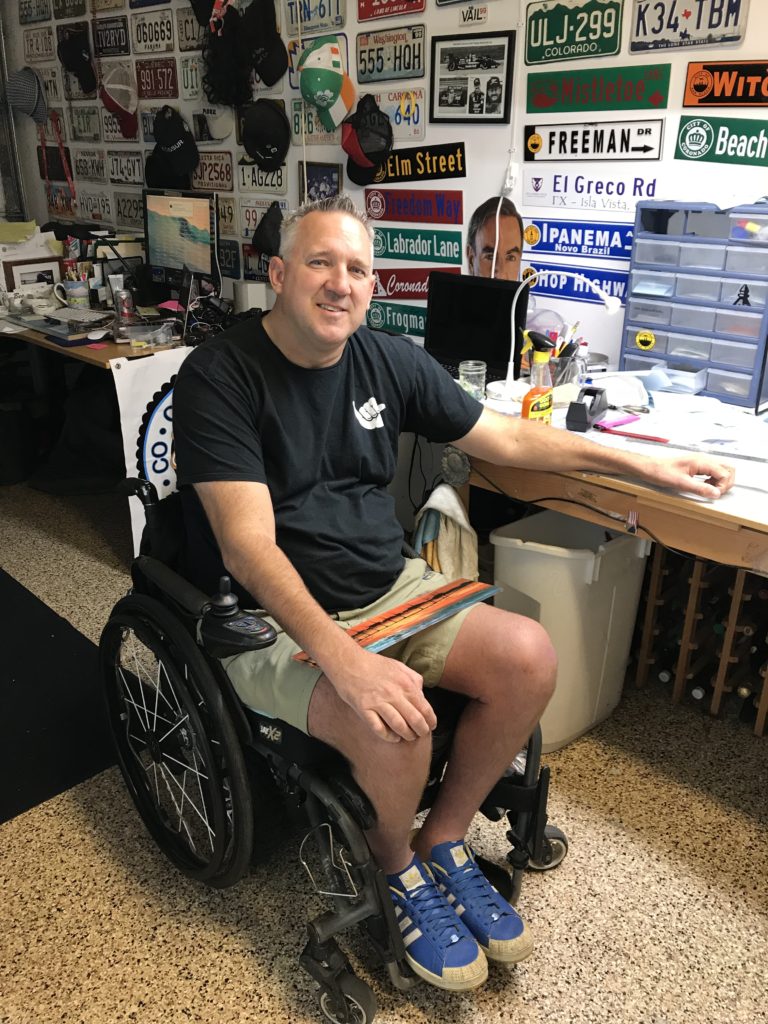
Without solicitation, Stefan also finds that many people will come up to him to tell him that they’re praying for him. While he welcomes the well-wishes sent his way, he is quick to point out that he loves his family, job, and hometown, and that there are so many others in society who may be in need of those prayers more so than him. “I’m living the life I want to live, and I don’t want people to ever feel sorry for me. I just get around a little differently than everyone else.” As he points to his wheelchair, he says, “Instead of riding a bike, this is my transportation.”
“My perspective in life is that I’m 6’3”. I used to be the tallest person in the room. Now I’m 4’7″, and I’m constantly looking up,” Stefan says. When he still lived in Orange County, Stefan was the President and Founder of the Looking Up Foundation, doubly named for his “new” height as well as his overall attitude toward life. As part of that foundation, Stefan had extra wheelchairs where he worked with students, giving them experiential education so kids could get a glimpse of what it’s like to be in a wheelchair.
While strangers’ reactions to him don’t typically bother him, what does frustrate him is how expensive wheelchairs, wheelchair-friendly vehicles, and adaptive devices are. Referencing his van, he says, “For $60,000 I could be driving a Porsche. That’s what bothers me. It’s crazy that my wheelchair costs $14,000!” Noting how his home here in Coronado was specifically built so he could maneuver seamlessly throughout the house, he wishes that more homes could be wheelchair accessible. “My whole life is planning ahead, figuring out how I’m going to get around,” he says, “and for most people, that’s not even a thought.”
As far as getting around in Coronado is concerned, Stefan has noted how there have been many improvements in regards to how the Americans with Disabilities Act is implemented in the Crown City, but there are still some local businesses that aren’t quite as compliant as they should be just yet.
Coronado Street Sign Company
After owning and operating Coronado Island Cookie Company for a few years, Stefan decided that cookies, although delicious, weren’t his true calling. Channeling his Vail days, where signs would clearly mark the various trails on the ski slopes, Stefan had the idea for his next business venture, the Coronado Street Sign Co.! Rather than make trail signs, however, Stefan decided to instead make street signs.
Showing me the wooden prototype for his first sign, modeled after the customized trail signs a friend of his back in Vail sold, Stefan says, “I realized I could do signs like this here in Coronado.”
After approaching City Manager Blair King, who advised Stefan to alter the crown so it could be licensed, Stefan was ready for business! While the wooden ski trail signs may have been the inspiration for his own sign business, Stefan quickly elevated the signs he sold to be look more like actual street signs one would find here in town as opposed to on the slopes in Colorado. Made of metal with precise, computer-generated decals, the professional quality of the signs Stefan sells make them the perfect gift for others or even for oneself.
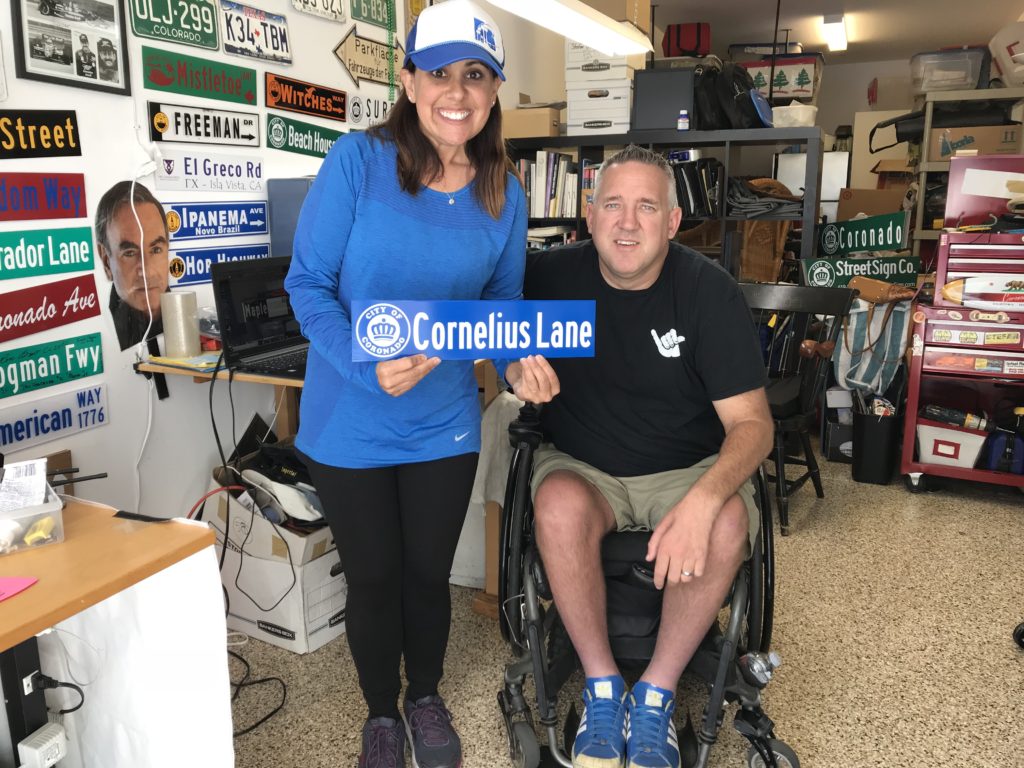
While initially geared toward tourists, Stefan’s signs, which sell for $25 a piece, quickly became a hit with locals, who wanted personalized street signs of their own. Stefan has branched off, including San Diego, Imperial Beach, and Chula Vista. In the beginning, Coronado Street Sign Co. was only offering green and white signs that resembled the street signs found in the Village, but as his business expanded, Stefan began offering a variety of colors to match people’s personal preferences. In addition to the crown, he also began adding other local symbols, including a tiki figure, to appeal to the many interests of local residents.
“Each sign is made by hand, and I think that’s a big part of the appeal,” Stefan says. Currently operating from his workshop in his garage, which is colorfully decorated with license plates from all over the world, Stefan shares, “I would love to have a place where tourists could come by my shop and order a sign on the spot, and have it made on-site. That’s my dream. I’d love for people to be able to go on to my website, still being upgraded, and pick exactly what they want. I want to simplify the process to make it easier for people to order,” Stefan says.
Self-taught, Stefan’s works of art are designed from the heart. “I find this to all be so fun! Someone recently said, ‘I keep seeing your signs everywhere,’ which is so gratifying to me,” Stefan says, with his warm smile once again stealing the show. “To see your work being displayed or enjoyed by others is a remarkable feeling,” he adds.
In addition to the aluminum street signs, Stefan has begun collaborating with local photographers, whose pictures of our town’s beautiful scenery are serving as backdrops of the plexiglass street signs he’s now recently begun offering. For pricing information, contact Stefan directly. See additional information below for contact information.
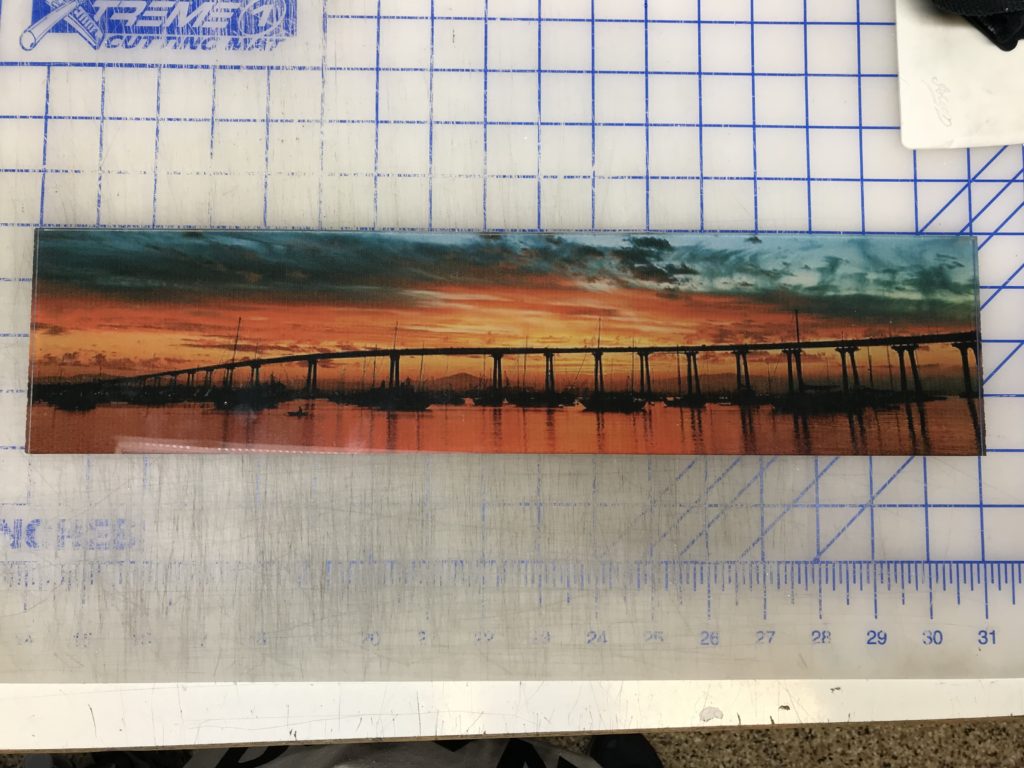
When buying a street sign from the Coronado Street Sign Company, remember that you’re not just purchasing a piece of memorabilia; you’re supporting a local business. As I looked around at the collection of license plates adorning Stefan’s workshop walls, I noticed he didn’t have one from Hawaii. Having moved to California from Hawaii two and a half years ago, I told Stefan that I will be bringing one of the old license plates I saved from my when my car was registered there. (Shhh! Don’t tell the Hawaii DMV I forgot to mail it back!) If anyone embraces the true meaning of aloha, it’s my new friend, Stefan Freeman. Aloha doesn’t just mean hello and/or goodbye; it’s a way of life. It’s not just the Cornelius Lane street sign that Stefan made for me that made me smile; it was his infectious enthusiasm and zest for life that really resonated with me. Mahalo, Stefan!
Additional Information:
Website: coronadosign.com
Facebook: Coronado Street Sign Company
Phone: 619-537-9220
email: [email protected]




